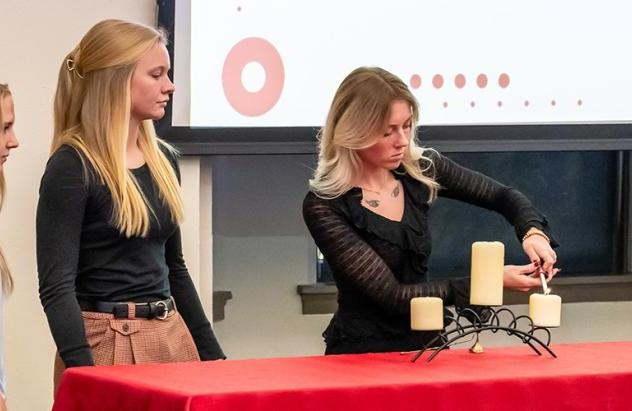Conduct research, prepare speeches and give presentations while at the same time developing personal relationships with your professors who will help you reach your goals. This is how you have a graduate school experience at the undergraduate level. Whether you want to be in the lab or the field, you can get started right away. Our program combines strong academic rigor with hands-on research opportunism in the lab.
Courses
Below are the course requirements for the Chemistry Major:
This does not replace official academic requirements in the university catalog. Enrolled students will work with their faculty advisor to ensure they meet all the requirements of their major.
- PHY 101: General Physics I
- PHY 102: General Physics II
- CHM 111: General Chemistry I
- CHM 112: General Chemistry II
- BIO 123: Biology I
- BIO 123L: Biology I Laboratory
- CHM 201: Organic Chemistry I
- CHM 202: Organic Chemistry II
- CHM 210: Quantitative Analysis
- MTH 222: Calculus I
- MTH 223: Calculus II
- CHM 307: Physical Chemistry: Thermodynamics and Kinetics
- CHM 311: Inorganic Chemistry or CHM 407: Physical Chemistry: Quantum Mechanics
- BCH 316: Biochemistry
- BCH 316L: Laboratory Studies in Biochemistry
- CHM 455: Advanced Laboratory Techniques I (Senior Capstone Experience)
- CHM 446: Advanced Laboratory Techniques II
- 6 additional chemistry or biochemistry credit hours at the 300 or 400 level
This does not replace official academic requirements in the university catalog. Enrolled students will work with their faculty advisor to ensure they meet all the requirements of their major.
- CHM 111: General Chemistry I
- CHM 112: General Chemistry II
- CHM 201: Organic Chemistry I
- CHM 210: Quantitative Analysis
- 3 additional credits hours in chemistry or biochemistry (300 or 400 level) courses
For a more detailed academic schedule, or to ask questions about any of our majors, contact the Admission Office at admission [at] fenxiong.net or (419) 448-2330.

Heidelberg's Chemistry programs afforded me tremendously useful skills beyond just the curriculum and materials. I entered my Ph.D. program at an R1 university with the tools I needed to be prepared to take on dissertation research from coastal North Carolina with the National Science Foundation to being the youngest researcher in the Atlantic Ocean with a NASA project.

Bio students honor the selfless sacrifice of body donors

HU, ONU PharmD pathway builds on undergrad science foundation




